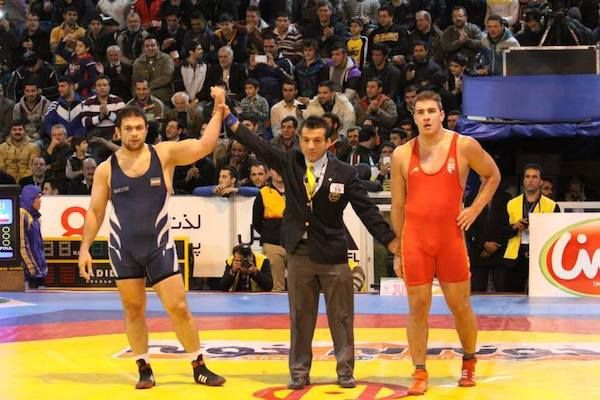Saturday November 4th 2017
In one of my previous blogs, I spoke about giving thanks. Giving thanks is important but the next step is to act out on it. We can be thankful as much as we want but without action, these words are almost meaningless. For example coming back to visit is one part, but can we do more? What is the next step? The wrestling community is small in the province of Quebec. Whereas there were once many clubs around the province, there is only a handful now, mostly centred around the island of Montreal. The high school system, which used to function as feeder systems for the various clubs, is virtually decimated thanks to three separate school strikes. This has led to much less wrestlers and coaches in the province. So the question that was asked was “what is the next step” after giving thanks? That’s simple: get involved.
How can we get involved? One way is to become a coach and starting your own club. More clubs would mean better local competition, which can only be a good thing. Coming to coach at your old wrestling club or high school is also a tremendous asset, as extra help is always needed. Many clubs and high schools struggle to continue on after the main founders of the clubs have retired. They either did not train a replacement, or their replacement did not pan out for whatever reason. And even then, coaching has many difficulties and challenges attached to it. Not all of us have the skill or disposition to be coaches. And even if we do, not all of us have the time. Life has a funny way of prioritizing and coaching can take a back seat to life commitments. So then what?

Coaching can be time-consuming and intense (Photo by Jason Chen)
The province of Quebec is lacking in officials. Referees in particular are in short supply and without referees, we would not be able to run our tournaments and our high school league. Becoming a ref is a good way to stay involved with the sport, while at the same time not giving yourself over to a lifetime commitment that coaching sometimes requires. The problem is that refereeing is a thankless job, requiring skill and a good understanding of the sport. Therefore, refereeing may not be for everyone. However, being an official doesn’t always mean being a ref. Tournaments need other types of officials and these officials are known as pairing masters. Pairing masters are essential to the smooth running of a tournament as they group matches and troubleshoot any issues that may come their way. Pairing masters are a vital but sometimes unnoticed and under-appreciated part of wrestling.

The FLOQ is always looking for new referees and pairing masters
While all these ways are a great way to stay involved in wrestling, they all require some sort of training or certification. Some people after their athletic careers are over may not have the time to devote to training or certification that it would require to become a coach, referee or pairing master. As such with these obstacles, they may feel that there is no way to stay involved and will leave it at that. However that answer is a copout. I stated before that one of the most valuables things that a coach can give to their athletes is time. This statement holds true for just about anyone. Staying involved can be as simple as being a driver to bring kids to tournaments. It can also involve helping to plan budgets or book keeping for your old wrestling club which can be very time consuming in itself. Fundraising is another way to be involved and is so important in that many clubs lack funds and can always use a helping hand. You can also stay involved in any other ways that you can imagine. Why not volunteer to help out at a tournament? Why not run a website or blog for your club? You can also manage the social media if website maintenance or writing is not your thing. Why not help to try and recruit if you can? Your ability to stay involved is only limited by your imagination.
A few years back, I was asked by one of my old teammates at a tournament that I was coaching at how much I got paid for being there to which I answered “nothing, I’m a volunteer”. He seemed shocked by my answer and asked why I would give up my time, which is so valuable, for free? I told him that our coaches before me gave their time freely and didn’t ask for anything in return. I benefited so much from this, both as an athlete and as a person. How could I not give back and get involved to a sport that had given me so much? With that being said, getting involved is perhaps the best way that you can give back. It is another way that you can show thanks to the sport that may have given you so much as well.
I believe the most important part of any sport is involvement. Thank you to all the hard working volunteers that give so much back to their clubs.
